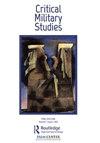Yoga for veterans and military personnel: in conversation with David Venus
Q1 Arts and Humanities
引用次数: 2
Abstract
ABSTRACT David Venus, a former physical training instructor in the Royal Marine Corps, now works as a full-time movement therapist and yoga instructor. Audrey Reeves, an assistant professor in political science at Virginia Tech, crossed path with David in 2017, while completing a yoga teacher training. Audrey and David met again at David’s home studio on the Northumberland coast, where he lives with his partner Claire and their four-year-old. As Audrey arrives, Claire is printing off David’s typed answers to an email sent by Audrey. ‘Because of PTSD, David’s memory sometimes fails him’, she explains. ‘He answered your questions in his own time so he could get the dates right’. From the upper floor, the blue ribbon of the sea is visible in the distance. Soon, David and I sit on a rug and resume the conversation started by email.退伍军人和军人的瑜伽:与大卫维纳斯的对话
大卫·维纳斯曾是英国皇家海军陆战队的体育教练,现在是一名全职的运动治疗师和瑜伽教练。奥黛丽·里夫斯是弗吉尼亚理工大学政治学助理教授,她在2017年完成瑜伽教师培训时与大卫相遇。奥黛丽和大卫在大卫位于诺森伯兰郡海岸的家庭工作室再次相遇,大卫和他的伴侣克莱尔以及他们四岁的孩子住在那里。奥黛丽来的时候,克莱尔正在打印大卫对奥黛丽发来的一封电子邮件的回复。“因为创伤后应激障碍,大卫有时会失忆,”她解释道。“他用自己的时间回答你的问题,这样他就能把日期搞错。”从楼上,远处可以看到大海的蓝带。很快,大卫和我坐在地毯上,继续通过电子邮件开始的谈话。
本文章由计算机程序翻译,如有差异,请以英文原文为准。
求助全文
约1分钟内获得全文
求助全文
来源期刊

Critical Military Studies
Arts and Humanities-History
CiteScore
1.90
自引率
0.00%
发文量
20
期刊介绍:
Critical Military Studies provides a rigorous, innovative platform for interdisciplinary debate on the operation of military power. It encourages the interrogation and destabilization of often taken-for-granted categories related to the military, militarism and militarization. It especially welcomes original thinking on contradictions and tensions central to the ways in which military institutions and military power work, how such tensions are reproduced within different societies and geopolitical arenas, and within and beyond academic discourse. Contributions on experiences of militarization among groups and individuals, and in hitherto underexplored, perhaps even seemingly ‘non-military’ settings are also encouraged. All submitted manuscripts are subject to initial appraisal by the Editor, and, if found suitable for further consideration, to double-blind peer review by independent, anonymous expert referees. The Journal also includes a non-peer reviewed section, Encounters, showcasing multidisciplinary forms of critique such as film and photography, and engaging with policy debates and activism.
 求助内容:
求助内容: 应助结果提醒方式:
应助结果提醒方式:


